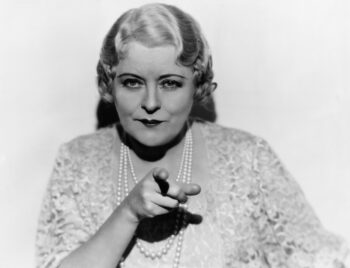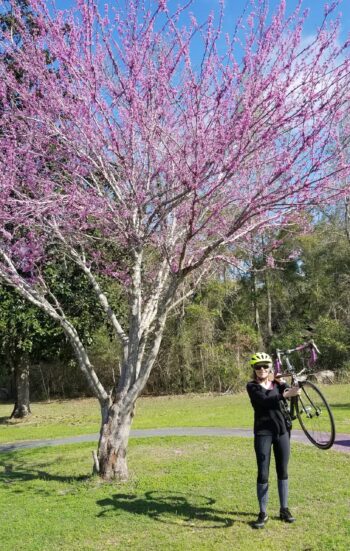 The takeaway: Nancy’s Schlossberg’s book, Too Young to Be Old, provides research-backed methods for building resilience against common life events occurring in our third act. These events include facing ageism, building a new identity and sense of purpose outside of work, as well as dealing with health challenges and relationship changes–to name a few. Her book provides a roadmap to cope, conquer, and thrive.
The takeaway: Nancy’s Schlossberg’s book, Too Young to Be Old, provides research-backed methods for building resilience against common life events occurring in our third act. These events include facing ageism, building a new identity and sense of purpose outside of work, as well as dealing with health challenges and relationship changes–to name a few. Her book provides a roadmap to cope, conquer, and thrive.
$$$

The greatest man of the greatest generation: my father-in-law.
When my father-in-law was born in 1924, his life expectancy was 55. We buried him at 94.
Until his last six weeks, he made 94 look decades younger than it is. Now we’re hearing that 70 is the new 60 or 50 or 40. Boomer, this is all above my pay grade.
But here’s what’s clear. None of us gets out unscathed. With all this fab longevity comes change, transition, and adjustment.
Dr. Nancy Schlossberg’s book, entitled; Too Young to Be Old: Love Learn, Work, and Play as You Age; previews the coming attractions we can expect. These coming attractions are based on research and are shown in Table 1.
(Unlike the author, yours truly channeled my inner David Letterman by placing these life events into a Top Ten list.)
Table 1. Top Ten Events and Situations We’ll Face If We’re Lucky Enough to See Our Golden Years.

Source: Schlossberg, Nancy K. Too Young to be Old: Love, Learn, and Play as You Age, 2017. Yours truly organized the life events above into a Top Ten format. This book provides researched-back techniques and tips for dealing with each of these Top Ten life events.
And yes, I know. Ageism is #10 and #1. (More on this later.)
Building a psychological portfolio
Just as a diversified financial portfolio contains stocks and bonds, Schlossberg stresses the importance of a diversified portfolio of psychological skills. These skills give us the resilience we need to handle those Top Ten life events. Of foremost importance is that we develop an identity independent of our former job title.

YOU need a psychological portfolio.
I still go to civic events where people who’ve been retired for years introduce themselves by who they used to be. Figure out who you are now, Schlossberg says.
We also need to replace those relationships we had at work with those that match our new retirement life. Even when we promise to stay in touch with those we worked with, it’s rarely ever the same. We must work to make new friendships a priority, so that we have support when the Top Ten come knocking.
Lastly, we need to find a new purpose for our days; something that gets us out of bed each morning. Many retirees do volunteer work, which has the added benefit of helping them build relationships more closely aligned to their retirement lives.
A psychological portfolio with a strong sense of purpose, healthy relationships, and a clear identity takes resilience to build. But by building that resilience, it gives us the skills we need to tackle those Top Ten coming attractions.
…our inability to cope with ageist messages will diminish the resilience we need to thrive in our third act.”
Facing ageism isn’t for amateurs.

36 foot sculpture of Carrera marble outside the Italian Stock Exchange in Milan–Piazza degli Affari. Sculptor: Maurizio Cattelan. Photo credit: yours truly.
Every day we’re bombarded with ageist message from a wide variety of sources, including the:
- media,
- workplace,
- service sector, and –worst of all–
- our own mind.
Schlossberg says we must use our psychological portfolio and talk back to our own mind. We can never assume we’re too old to do something. We need to be open to new possibilities.
Otherwise, our inability to cope with these ageist messages will diminish the resilience we need for when those Top Ten events come calling.
I’m ashamed to admit that my method of coping with ageism is reflected in the imposing statue I stumbled upon one hot afternoon in Milan when I was lost. (Don’t judge me.😨 My psychological portfolio still needs work.⛏️)
The author’s resilience story

Careful, she’s a badass.
Dr. Schlossberg’s must have a strong psychological portfolio of her own because her Top Ten journey would flatten plenty of folks (or at least me). After a prominent career, she spent an isolating six years providing full-time care to her husband. In a catastrophic accident, he’d fallen down a 188-foot escalator, and nearly died while in Washington, DC.
Despite multiple surgeries, he never fully recovered and developed dementia in the process. Then, just after the author, herself, had undergone emergency hip and back surgery, her husband died–leaving her to mourn their 48-year marriage alone from a hospital rehab facility.
With the resilience she teaches, she eventually decided she wanted to recreate the closeness she and her husband shared. So, this 80-something woman tried online dating. (!) There she met and, after a long courtship, married an 86-year-old widower (who coincidentally lived in her city).
This dame has resilience!
Reelin’ in the years with resilience

Yours truly at 70, burning off defiance and working toward resilience. Photo credit: Meg Bates.
The bottom line is that if we’re going to thrive in our third act, we need resilience to tackle those life events that will surely come our way.
When each and every one of his high school buddies was killed in World War II, my father-in-law learned to overcome his survivor’s guilt. With each visit to the nursing home, he introduced himself to his bride of 60 years, who no longer knew him. He endured 34 years of periodic chemo for a rare blood cancer.
Until his final curtain call, he never gave in and clung to the resilience he’d built to cope, conquer, and thrive.
I hope that can be us.
This book provides a roadmap. (Your mileage may vary.)
$$$
